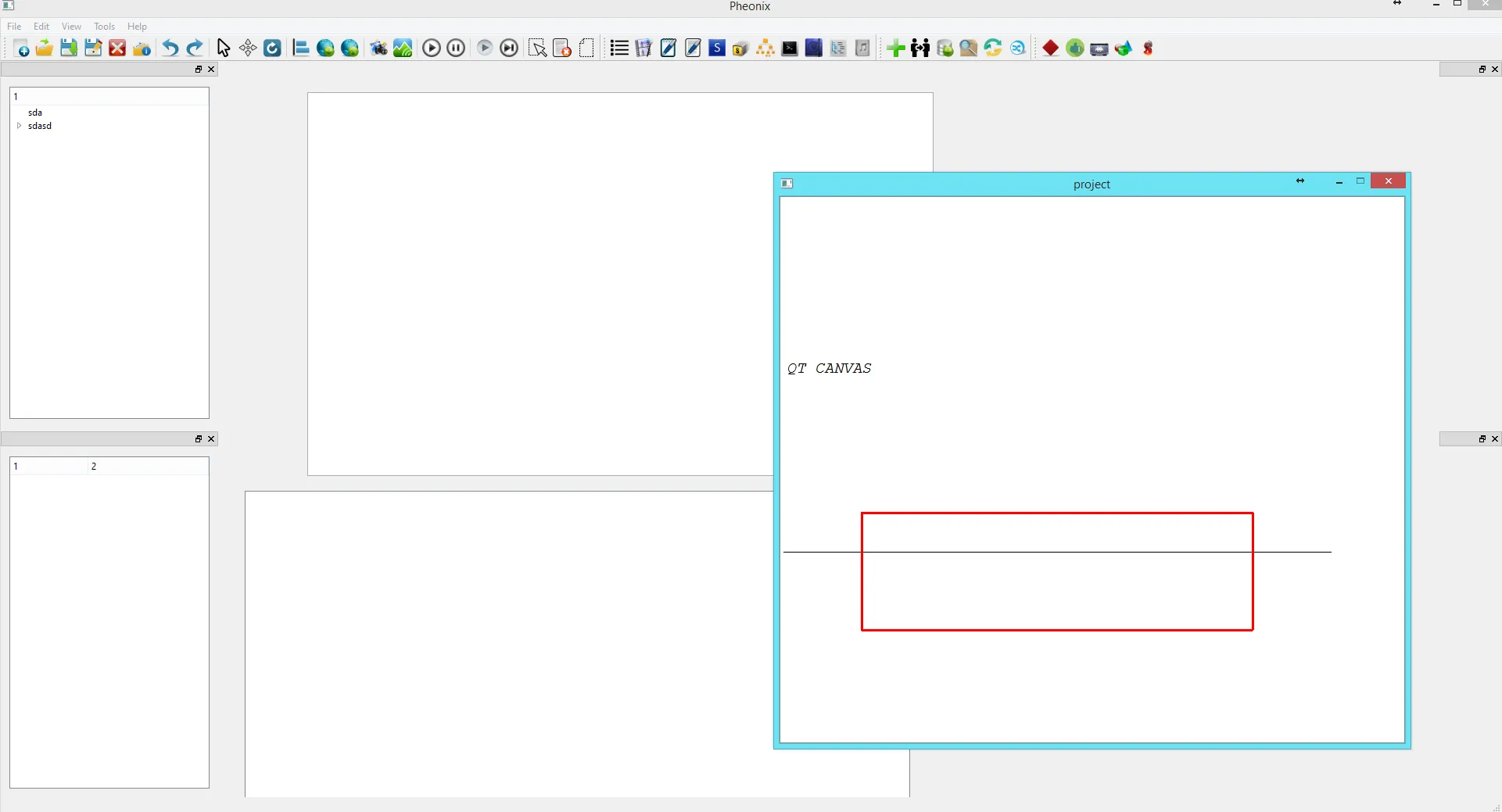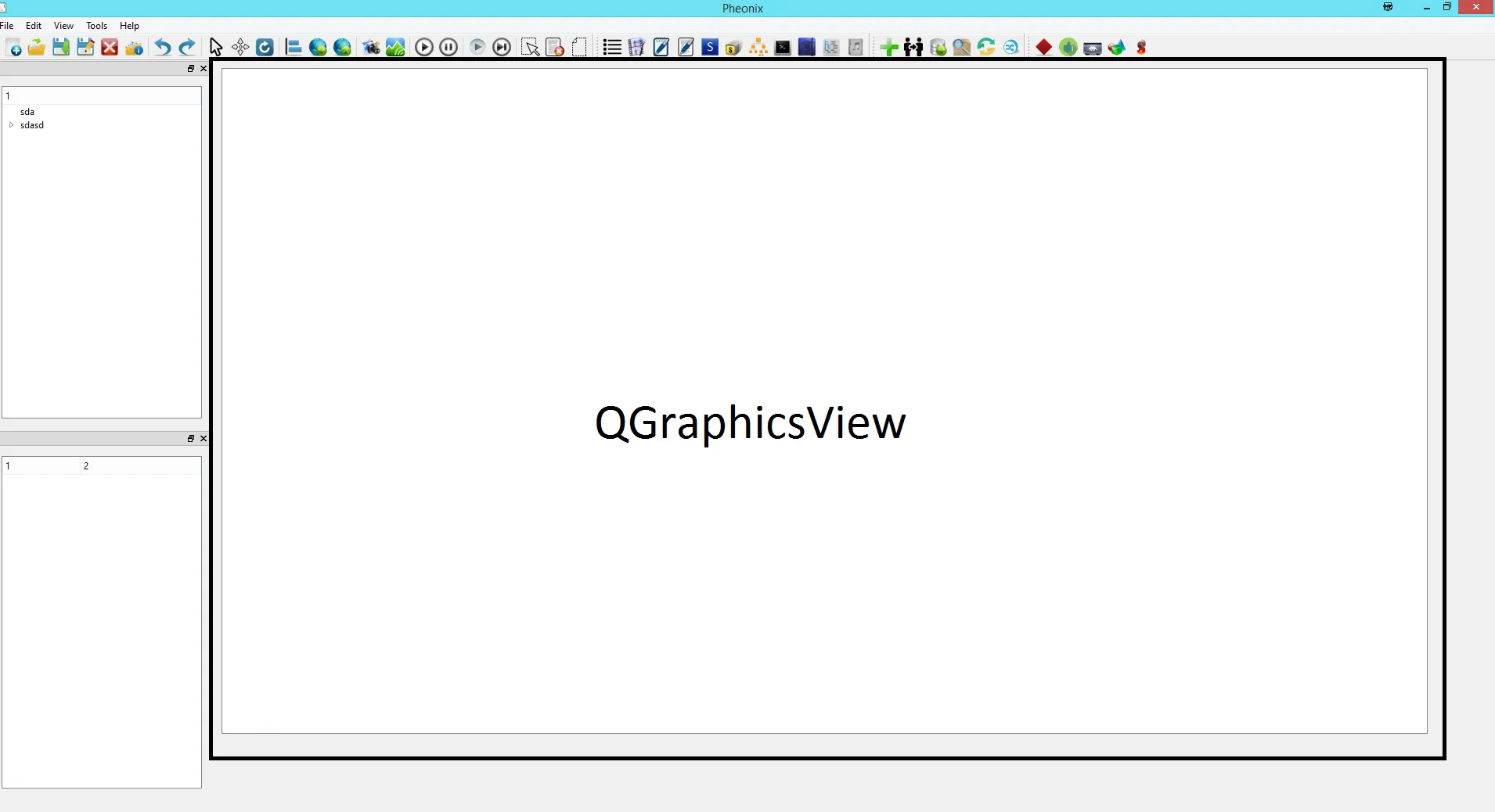目前,我正在开发一个需要集成到C++ Visual Studio项目中的Qt类。
Qt项目 - Qt Widgets应用程序。基于Qt Creator 3.2.1(开源),基于Qt 5.3.2构建。使用Visual Studio 2013 Professional,安装了Qt插件。
我尝试了来自互联网和其他Stack帖子的解决方案,但都没有成功。我不认为我的帖子是重复的,因为其他帖子没有解决我的问题。
我能够从代码中运行QML,但它会在另一个窗口中启动。在第一张图片中,显示了QML窗口(Qt画布)覆盖在我的程序UI上。

我需要将QML集成到我的程序UI中。如果有帮助,我可以使用QGraphicsView。

简单的QML示例。canvas.qml
import QtQuick 2.0
Rectangle {
id: rectangle
color: "red"
width: 600
height: 600
}